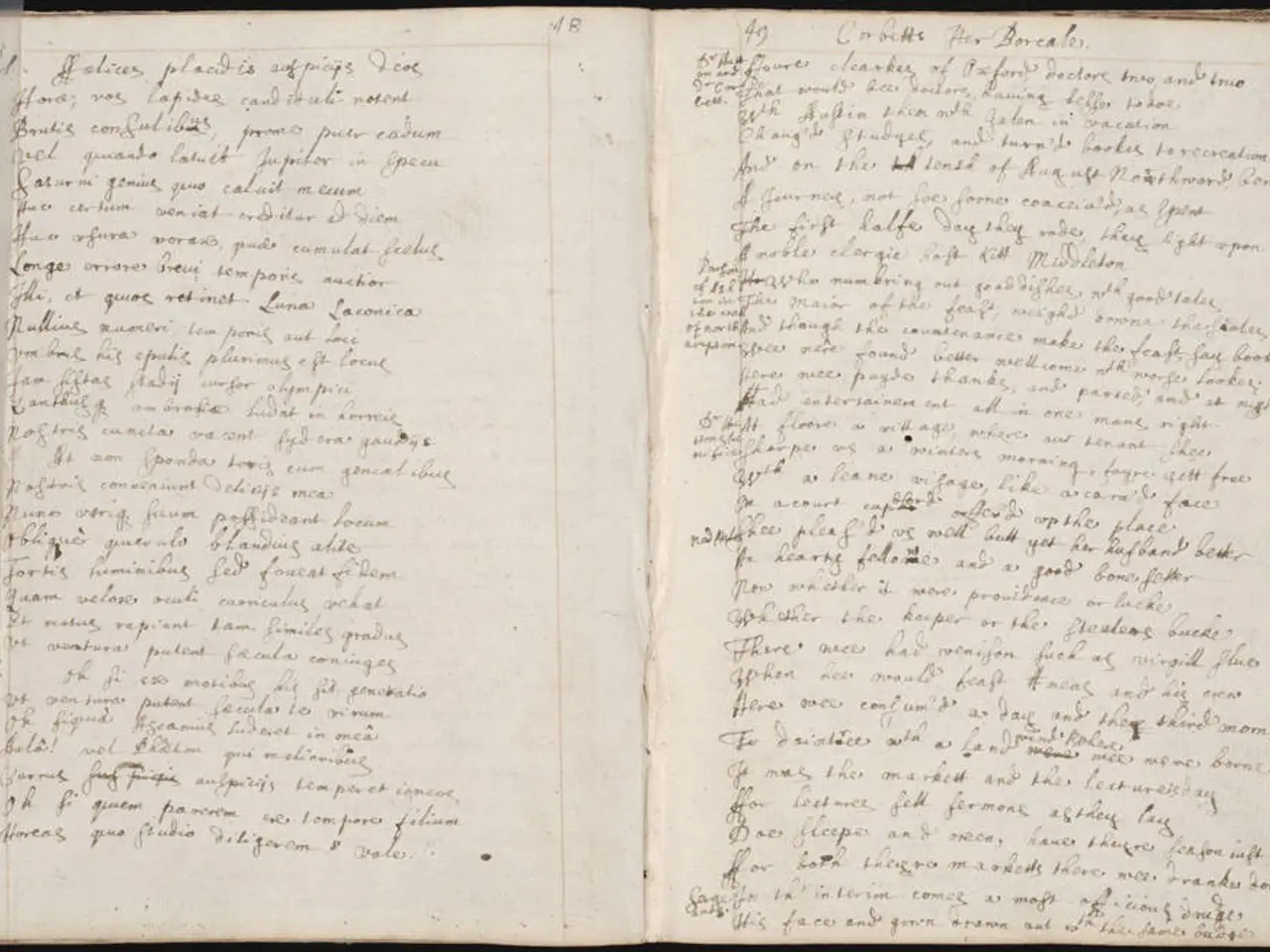Examining the Vocabulary of the Scripture: A Look at the Usage of Profane Language in the Bible
In the pages of the Bible, readers encounter a rich tapestry of language that, while profound and meaningful, can sometimes feel outdated or even offensive to modern sensibilities. This is due in part to the Bible's ancient origins, the languages in which it was originally written, and the cultural norms of the time.
Modern Bible translations, such as the English Standard Version (ESV) and the New Revised Standard Version (NRSV), aim to bridge this gap by updating language for clarity, readability, and sensitivity, while maintaining fidelity to the original texts. This includes efforts like gender-inclusive language to suit modern sensibilities.
One example of this transformation is the replacement of now-obsolete pronouns like "thee," "thou," and "thy" with smoother, contemporary language in modern versions, while still respecting the poetic style of the original texts.
However, the Bible also contains narratives involving violence, warfare, and commands for destruction, which may be disturbing or offensive by modern ethical standards. Scholars note that some of this violent language may be hyperbolic or literary rather than literal.
Moreover, some biblical texts contain instructions against intermarriage with certain groups, strict purity laws, or focus on gender roles rooted in the cultural context of their time, which can appear sexist, ethnocentric, or intolerant today. For example, the stipulations in Deuteronomy about avoiding intermarriage and destroying sacred objects of other peoples reflect ancient religious and social norms that conflict with modern ideals of tolerance and equality.
The Bible also employs metaphors and imagery that can be considered offensive or crude by today's standards, particularly in descriptions of bodily functions, sexual acts, or warfare. However, it's important to remember that these passages were written in different linguistic and cultural frameworks.
Interpretation of biblical texts is also influenced by theological perspectives. For instance, some readers may view certain passages as harsh, offensive, or even violent, while others may find them profound and meaningful.
In conclusion, the Bible's language reflects its ancient origins and the cultures in which it was written, which differ significantly from modern linguistic and ethical standards. Contemporary Bible translations seek to bridge this gap by updating language for clarity, readability, and sensitivity while maintaining fidelity to the original texts. At the same time, some biblical concepts or terms remain challenging and potentially offensive when viewed through today’s ethical and cultural lenses.
- Apart from the Bible, a diverse collection of topics cater to modern readers' interests, including lifestyle, fashion-and-beauty, food-and-drink, home-and-garden, and more.
- In the realm of technology, advancements in data-and-cloud-computing have revolutionized the way we store, access, and analyze information, transforming various industries.
- For those with a passion for reading and learning, there exists a vast library of books covering diverse genres such as education-and-self-development, entertainment, and general-news.
- Fans of sports follow the latest updates, matches, and player statistics with dedicated applications and websites, keeping up with their favorite teams and athletes.
- To check the weather conditions and forecasts, individuals rely on mobile apps or online services that cater to an international audience, offering accurate and timely information to help in planning daily activities.
- Despite the adaptations in Bible translations, it's essential to understand that the Bible originates from a different cultural and historical context, making it necessary to approach its texts with sensitivity and an open mind.




